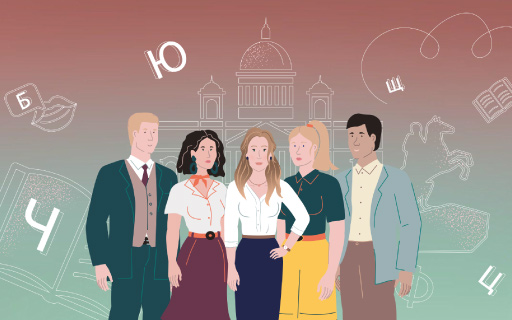
当前课程知识点:History of Western Civilization 全英文西方文明史 > Chapter 8 West in the Eighteenth Century > 8.4 Age of Enlightenment > 8.4.2 Video
返回《History of Western Civilization 全英文西方文明史》慕课在线视频课程列表
8.4 Age of Enlightenment
1. The Modern history of Europe started from the early 16th century until the end of the second Word War in 1945. The Modern history witnessed three culture movements: the Renaissance, the Protestant Reformation and the Enlightenment. Age of Enlightenment also known as the Age of Reason or simply the Enlightenment was an intellectual and philosophical movement in Europe during the 18th century. The 18th century was called the "Century of Philosophy" because the Enlightenment and its strong impact on the whole Western civilization.
As a verb, "enlighten" means to give knowledge and greater understanding about something. The Enlightenment had a set of advanced ideals like liberty, optimism, happiness, progress, tolerance, fraternity, constitutional government and separation of church and state.
2. Dare to know is the spirit or attitude of the Enlightenment. Dare to know requires free thinking based on reason. Like German philosopher Immanuel Kant 1724-1804 wrote in What Is Enlightenment?
This enlightenment requires nothing but freedom--and the most innocent of all that may be called "freedom": freedom to make public use of one's reason in all matters. Now I hear the cry from all sides: "Do not argue!" The officer says: "Do not argue--drill!" The tax collector: "Do not argue--pay!" The pastor: "Do not argue--believe!" Only one ruler in the world says: "Argue as much as you please, but obey!" We find restrictions on freedom everywhere. But which restriction is harmful to enlightenment? Which restriction is innocent, and which advances enlightenment? I reply: the public use of one's reason must be free at times, and this alone can bring enlightenment to mankind.
3. The Enlightenment started from France. French historians traditionally defined Age of Enlightenment from the death of Louis XIV in 1715 to 1789 the beginning of the French Revolution.
Enlightenment was influence by the scientific revolution in the seventh century and the Industrial Revolution which began in Great Britain from mid-eighteenth century and lasted to the mid-nineteenth century. The technological innovations of the Industrial Revolution include the textiles machines and steam engines. This revolution made Great Britain became the world's leading industrial, trade and commercial power.
The bourgeoisie. The French word bourgeois means "town dweller". In Marxist theory, the bourgeoisie are the middle-class people who own most of the wealth in a capitalist system, and the lower middle class was the petty bourgeoisie. The bourgeoisie played a heroic and progressive role in all revolutions from the 17th century including the English revolutions, the Industrial Revolution, the Enlightenment, the American Revolution and the French Revolution. However,the bourgeoisie also seeks to monopolize the benefits of the modernization by exploiting the propertyless proletariat and thereby creating new revolutionary tensions.
4. Salons. In French "salon" is a drawing room or reception room in a large house. In France during the 17th and 18th centuries salon means an assembly of guests in such a room, the guests were the leaders in society, art, politics, etc. The host of a salon was normally an important noblewoman. Salons played an important role in the process of Enlightenment; the Enlightenment ideas were discussed there by intellectuals.
5. The Café Procope. Coffee is a brewed drink prepared from roasted coffee beans, coffee beans originally from tropical Africa. In 15th century it was brought to Aribia. In 17th century this "Muslim drink" spread to Italy then the whole Europe. Café Procope is the oldest restaurant of Paris opened since 1686 and still opened today. Throughout the 18th century, it was the meeting place of the Enlightenment intellectuals. Voltaire, Diderot often went there, Voltaire drank forty cups of coffee a day. From this painting we can see Voltaire with his arm raised and Diderot to his right.
Let’s talk about the greatest Enlightenment intellectuals
6. Montesquieu 1689-1755 is famous for his theory of separation of powers which influenced the Founding Fathers in drafting the United States Constitution. He was born into a noble family in Bordeaux; succeed from his uncle as the Baron de Montesquieu, served as a counselor and highest judge in the Bordeaux Parliament. He sold off his office and made the grand tour, spent two years in England. The two societies he most admired were ancient Rome and present-day Britain.
Persian Letters is a literary work telling the experiences of two Persian noblemen traveling through France, through the eyes of the two visitors, Montesquieu cleverly criticizing the absurdities of contemporary French society.
The Spirit of the Law. Montesquieu spent 21 years working on this book which covering a huge range of topics including law, social life and the anthropology. He argued about how liberty could be achieved and how to avoid despotism. Despotism is a cruel and unfair government by a ruler who has a lot of power and rule through threat of punishment and violence. He advocated a constitutional system of government with separation of powers, the preservation of legality and civil liberties, the abolition of torture and slavery.
7. Voltaire1694-1778 was a pen name; his real name was François-Marie Arouet. Voltaire was a versatile, his works including plays, poems, novels, essays and historical and scientific works. He left more than 20,000 letters and more than 2,000 books and pamphlets. He is famous for his outspoken criticism of Christianity, especially the Roman Catholic Church, and his advocacy of freedom of religion, freedom of speech, and separation of church and state. Voltaire challenged all authority, he held nothing sacred.
Voltaire was born into a bourgeois family, he had been jailed in the Bastille twice for his writing and for he challenged a nobleman for a duel which was considered an insult because he was not a nobleman. Duel is a prearranged fight with deadly weapons by two people to settle a quarrel over a point of honor.
8. He spent two years in Britain and came back writing Philosophical Letters Concerning the English Nation. He stated the English nation is the only one on the earth that has succeeded in controlling the power of kings by resisting them; the book was seen as an attack on the French absolute monarchy and soon was banned. He was forced to exile into the village of Cirey. There he lived openly with his mistress Émilie, Marquise du Châtelet and her husband, Émilie was a mathematician, 12 years younger than Voltaire.
During the French Revolution Voltaire’ body was removed from Champagne to Pantheon in Paris in 1791. Over a million people attended the procession; they chanted “Voltaire taught us to be free”. In 1815 when the Bourbon monarchy was restored, His bones were dumped in a lime pit.
Voltaire was also influenced by Confucius; he praised Confucian ethics and politics. Confucius has no interest in falsehood; he did not pretend to be prophet; he claimed no inspiration; he taught no new religion; he used no delusions; flattered not the emperor under whom he lived...
He stated the sociopolitical hierarchy of China as a model for Europe and the concept of Confucian rationalism as an alternative to Christian dogma.
This is the most famous quote of Voltaire: I disapprove of what you say, but I will defend to the death your right to say it
9. Jean-Jacques Rousseau 1712-1778 was born in Geneva, his father was a poor watch-maker and his mother died when he was an infant. Rousseau’ Discourse on the Origin and Basis of Inequality Among Men and The Social Contract are cornerstones in modern political and social thought. He claimed private property as the original source and basis of the civil society and all inequality. "The first who, having enclosed a piece of land is thought of saying this is mine, and found people simple enough to believe, was the true founder of civil society". To undo the evil, it is only necessary to abandon civilization. The Social Contract opened with the famous sentence: "Man is born free and everywhere he is in chains". He advocated democracy and denied the divine right of kings. This was very dangerous so he fled the country. The Social Contract became the Bible of most leaders of the French Revolution.
10. Rousseau's autobiography Confessions published after his death initiated the modern autobiography. It opens with the famous words: "I have resolved on an enterprise which has no precedent and which, once complete, will have no imitator. My purpose is to display to my kind a portrait in every way true to nature, and the man I shall portray will be myself." He wrote
I will present myself, whenever the last trumpet shall sound, before the Sovereign Judge with this book in my hand, and loudly proclaim, "Thus have I acted; these were my thoughts; such was I…" He proudly claimed no one after reading the book ever dares to say "I was better than that man."
11. Denis Diderot 1713 –1784 was a philosopher and writer. He had been jailed for one year from 1759 to 1750 for criticizing the government. Russian Empress Catherine the Great really admired Diderot, when she heard Diderot was in need of money, she bought his library and appointed him as her librarian, and she even paid him 25 years’ salary in advance. In 1773, Diderot traveled to St. Petersburg, during his five-month stay at her court the two met almost every day.
Diderot is best known for serving as co-founder, chief editor, and contributor to the Encyclopédie. Encyclopedia or a Systematic Dictionary of the Sciences, Arts, and Crafts was published in France between 1751 and 1772. It had many writers, known as the Encyclopédistes, they advocated for the secularization of learning away from the Jesuits. Diderot wanted to incorporate all of the world's knowledge into it and disseminate all this knowledge to the public and future generations. It is most famous for representing the thought of the Enlightenment,
12. Scottish economist Adam Smith 1723-1790 published The Wealth of Nations in 1776 which laid the foundations of classical free market economic theory. He used "the invisible hand" to describe the unintended social benefits of an individual's self-interested actions. And he argued how rational self-interest and competition can lead to economic prosperity. Italian jurist Cesare Beccaria 1738-1794 is considered the father of modern criminal law and the father of criminal justice. His On Crimes and Punishments (1764) condemned torture and the death penalty, he argued that punishment was to act as a deterrent to crime rather than as retribution.
13. The First Viennese School In the middle of the 18th century, a new style appeared in architecture, literature, and the arts, generally known as Classicism. The First Viennese School refers to three composers of the Classical period in late-18th-century Vienna: Haydn, Mozart, and Beethoven, they all worked in Vienna, the capital of Austro-Hungarian Empire and the capital of classical music.
Joseph Haydn 1732 – 1809, "Father of the Symphony" and "Father of the String Quartet", was a friend and mentor of Mozart, a tutor of Beethoven. He was an Austrian composer, played a very important role in the development of chamber music such as the piano trio. Haydn spent much of his career as a court musician for the wealthy Esterházy family at their remote estate.
Wolfgang Mozart 1756–1791 was born in Salzburg, he was a music prodigy. From the age of five Mozart had already composed and performed before European royalty. He died at the age of only 35, Haydn wrote: "posterity will not see such a talent again in 100 years". In Vienna Mozart achieved fame but always faced financial problems. His life was miserable but his music was happy, elegant and delicate. He composed many famous symphonies, concertos, and operas.
14. Ludwig van Beethoven 1770– 1827, was a German composer and pianist, born in Bonn, at the age of 12 he moved to Vienna. Beethoven was a crucial figure between the Classical and Romantic eras in classical music. By his late 20s his hearing began to deteriorate and in his last 10 years he was almost completely deaf. He composed 9 symphonies, 5 piano concertos, 1 violin concerto, 32 piano sonatas, 16 string quartets and a mass. His Third Symphony, Heroic Symphony was originally dedicated to Napoleon. But when he heard Napoleon would be crowned emperor, he scratched the name Bonaparte in the title page; he was so violent that he made a hole in the paper. Most of his works are very powerful and some are very romantic. The Symphony No. 9 is one of the most performed symphonies in the world today. Beethoven was the first one using human voices in a symphony. The lyric was a poem "Ode to Joy" written by Friedrich Schiller.
Joy, beautiful spark of divinity,
Daughter from Elysium,
We enter, burning with fervour,
heavenly being, your sanctuary!
Your magic brings together
what fashion has sternly divided.
All men shall become brothers,
wherever your gentle wings hover.
15. Key words: Age of Enlightenment, The bourgeoisie, Rousseau, Voltaire, Montesquieu, The First Viennese School
返回《History of Western Civilization 全英文西方文明史》慕课在线视频列表
-1.0 Introduction
--1.0.3 Exercises
-1.1 Greek Bronze Age and Dark Age
--1.1.3 Exercises
-1.2 Greek Gods
--1.2.3 Exercises
-1.3 Archaic Greece
--1.3.3 Exercises
-1.4 Athens and the Persian Wars
--1.4.3 Exercises
-1.5 Discussion
-2.1 War and politics in the fifth century BC
--2.1.3 Exercises
-2.2 Greece in the fourth century BC
--2.2.3 Exercises
-2.3 Classical Greek Philosophy
--2.3.3 Exercises
-2.4 Athenian Drama
--2.4.3 Exercises
-2.5 Alexander the Great and Hellenistic World
--2.5.3 Exercises
-2.6 Discussion
-3.1 Roman Kingdom
--3.1.3 Exercises
-3.2 Early Republic
--3.2.3 Exercises
-3.3 Mid-Republic
--3.3.3 Exercises
-3.4 Late-Republic
--3.4.3 Exercises
-3.5 End of the Republic
--3.5.3 Exercises
-3.6 Discussion
-4.1 Pax Romana 1
--4.1.3 Excecises
-4.2 Pax Romana 2
--4.2.3 Excecises
-4.3 Crisis of the Third Century and Constantine
--4.3.3 Excecises
-4.4 The Victory of Christianity
--4.4.3 Exercises
-4.5 The Fall of the Roman Empire
--4.5.3 Exercises
-4.6 Discussion
-5.1 Early Middle Ages
--5.1.3 Excecises
-5.2 Carolingian Dynasty
--5.2.3 Excecises
-5.3 High Middle Ages
--5.3.3 Excecises
-5.4 Late Middle Ages 1
--5.4.1 Excecises
-5.5 Late Middle Ages 2
--5.5.3 Excecises
-5.6 Discussion
-6.1 The Renaissance
--6.1.3 Exercises
-6.2 Protestant Reformation
--6.2.3 Exercises
-6.3 Italian Wars and Rise of Russia
--6.3.3 Exercises
-6.4 Age of Discovery
--6.4.3 Exercises
-6.5 French War of Religion and Russia’s Time of Trouble
--6.5.3 Exercises
-6.6 Discussion
-7.1 The Thirty Years War
--7.1.3 Exercises
-7.2 English Revolution
--7.2.3 Exercises
-7.3 Three Absolute Monarchs
--7.3.3 Exercises
-7.4 Dutch Golden Age
--7.4.3 Exercises
-7.5 Science and Culture in the 17th Century
--7.5 Text
--7.5.3 Exercises
-7.6 Discussion
-8.1 The United Kingdom
--8.1.3 Exercises
-8.2 The American Revolution
--8.2.3 Exercises
-8.3 The French Revolution
--8.3.3 Exercises
-8.4 Age of Enlightenment
--8.4.3 Exercises
-8.5 West after the 18th century
--8.5.3 Exercises
-8.6 Discussion



